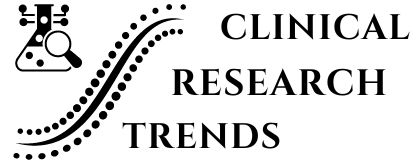The Impact of Precision Medicine on Clinical Trial Design
In recent years, precision medicine has emerged as a groundbreaking approach in the field of healthcare, fundamentally altering how diseases are diagnosed and treated. Unlike traditional medicine, which typically applies a uniform approach to patient care, precision medicine tailors medical treatment to the individual characteristics of each patient, including their genetic makeup, environment, and lifestyle. This paradigm shift holds the promise of more effective therapies and better patient outcomes, as treatments are designed to target the unique aspects of an individual's condition. The influence of precision medicine extends to various aspects of healthcare, including the design and execution of clinical trials, which are essential for the development of new medical treatments.
Clinical trials are research studies that evaluate the safety and efficacy of new medical interventions, such as drugs, devices, or procedures. Traditionally, these trials have been designed to test treatments on large, heterogeneous populations, with the goal of identifying average effects that can be generalized across a broad patient group. However, this approach often overlooks the individual variability in treatment responses, which can lead to suboptimal outcomes for many patients. Precision medicine addresses this limitation by focusing on the genetic and molecular characteristics that distinguish patients from one another, allowing for more targeted and personalized therapies. This blog explores the impact of precision medicine on clinical trial design, highlighting its benefits, challenges, and future directions.
The Evolution of Clinical Trial Design
The evolution of clinical trial design is closely linked to advancements in medical research and technology. In traditional clinical trials, the primary objective is to assess the overall safety and efficacy of a treatment across a diverse patient population. These trials typically involve randomization, where participants are randomly assigned to receive either the treatment under investigation or a control (such as a placebo or standard therapy). The results are then analyzed to determine whether the treatment is effective and safe for the general population.
While this approach has been instrumental in advancing medical knowledge, it has notable limitations. One of the main challenges is the variability in patient responses to treatment, which can be influenced by factors such as genetics, comorbidities, and lifestyle. As a result, a treatment that is effective for some patients may be less effective or even harmful for others. This variability can lead to inconclusive or misleading results, as the effects observed in the trial may not accurately reflect the experiences of individual patients.
The introduction of precision medicine has brought about a significant shift in clinical trial design by emphasizing the importance of genetic and molecular profiling. This approach seeks to identify specific subgroups of patients who are more likely to benefit from a particular treatment based on their genetic and molecular characteristics. For example, in cancer research, genetic profiling can reveal specific mutations in a patient's tumor that make it susceptible to certain targeted therapies. By focusing on these subgroups, precision medicine clinical trials can provide more accurate and meaningful results, leading to the development of therapies that are tailored to the needs of individual patients.
Key Elements of Precision Medicine in Clinical Trials
One of the most critical elements of precision medicine in clinical trials is the use of biomarkers and genetic profiling. Biomarkers are biological molecules that indicate a particular disease state or condition and can be used to identify patients who are likely to respond to a specific treatment. These markers can include genes, proteins, and other molecular signals that provide insights into a patient's disease and how it may respond to treatment. In the context of clinical trials, biomarkers are used to stratify patients into different groups based on their likelihood of benefiting from the treatment under investigation.
Genetic profiling, which involves analyzing a patient's genetic material to identify mutations or variations that may influence their response to treatment, is another crucial component of precision medicine. This process can provide valuable information about the underlying mechanisms of a disease and help identify potential targets for therapy. For example, in the case of cancer, genetic profiling can reveal mutations in oncogenes or tumor suppressor genes that drive the growth of the tumor. By targeting these mutations with specific therapies, clinicians can develop more effective treatments that are tailored to the individual patient's genetic profile.
Targeted therapies are a cornerstone of precision medicine, designed to interact specifically with the genetic mutations or molecular pathways associated with a disease. These therapies offer several advantages over traditional treatments, including increased specificity, reduced toxicity, and the potential for better patient outcomes. For instance, trastuzumab (Herceptin) is a targeted therapy used to treat HER2-positive breast cancer, a subtype characterized by the overexpression of the HER2 protein. By specifically targeting this protein, trastuzumab can effectively inhibit the growth of cancer cells, leading to improved survival rates for patients with this subtype of breast cancer.
Another significant advancement in precision medicine clinical trials is the adoption of adaptive trial designs. Adaptive trials are characterized by their flexibility, allowing modifications to the trial protocol based on interim results. This can include changes to the dosage, patient population, or treatment arms, making the trial more responsive to emerging data. Adaptive designs are particularly valuable in precision medicine, where patient responses can be highly variable, and early data can inform better decision-making. For example, if a particular biomarker is found to be predictive of treatment response, the trial can be adapted to include only those patients who have that biomarker, thereby increasing the likelihood of demonstrating a treatment effect.
Benefits of Precision Medicine in Clinical Trials
The incorporation of precision medicine into clinical trial design offers numerous benefits, both for patients and the healthcare system. One of the most significant advantages is the increased efficacy and safety of treatments. By targeting therapies to specific genetic or molecular profiles, precision medicine can achieve better outcomes with fewer side effects. This targeted approach reduces the likelihood of adverse reactions, as treatments are more specifically matched to the patient's biology. For example, targeted therapies in oncology, such as tyrosine kinase inhibitors, have shown remarkable efficacy in treating cancers with specific genetic mutations, while minimizing damage to normal cells.
In addition to improved patient outcomes, precision medicine can lead to greater efficiency in drug development. Traditional clinical trials often require large sample sizes and extended durations to demonstrate statistical significance. In contrast, precision medicine trials can achieve similar or better results with smaller, more homogenous patient populations. This reduction in trial size and duration can significantly lower the costs associated with drug development and expedite the process of bringing new therapies to market. Furthermore, by focusing on patients who are most likely to benefit from a treatment, precision medicine can increase the success rate of clinical trials, reducing the risk and cost associated with drug development.
Another important benefit of precision medicine is the ability to provide personalized treatment plans that are tailored to the individual characteristics of each patient. This personalized approach considers factors such as genetics, lifestyle, and environment, allowing for more accurate predictions of treatment responses. For patients, this means receiving therapies that are more likely to be effective and less likely to cause harm. For healthcare providers, it allows for more informed decision-making and better resource allocation. Personalized treatment plans can also improve patient adherence and satisfaction, as treatments are more closely aligned with patients' needs and preferences.
Challenges and Considerations
Despite its many benefits, the implementation of precision medicine in clinical trials also presents several challenges and considerations. One of the primary challenges is the complexity and cost associated with genetic testing and profiling. The technologies required for comprehensive genetic analysis, such as next-generation sequencing, can be expensive and require specialized expertise. Additionally, the vast amount of data generated by these tests can be challenging to interpret and manage. This complexity can pose barriers to the widespread adoption of precision medicine, particularly in resource-limited settings.
Data privacy and ethical concerns are also critical considerations in precision medicine. Genetic information is highly sensitive, and there are concerns about how this data is collected, stored, and used. Ensuring the confidentiality and security of genetic data is paramount, as is addressing the ethical implications of using genetic information in patient selection and treatment. For instance, there may be concerns about discrimination based on genetic risk factors or the potential for psychological harm if patients learn about genetic predispositions to certain diseases. It is essential to establish clear guidelines and regulations to protect patients' rights and ensure the responsible use of genetic information.
Regulatory and logistical challenges also play a significant role in the adoption of precision medicine. Navigating the regulatory landscape for new genetic tests and targeted therapies can be complex, as these innovations often fall outside the traditional frameworks established for conventional treatments. Regulatory agencies must adapt to the unique aspects of precision medicine, such as the use of biomarkers for patient selection and the need for adaptive trial designs. Additionally, there is a need to ensure equitable access to precision medicine, as these treatments can be costly and may not be available to all patients. Addressing these disparities is crucial to prevent widening the gap in healthcare access and outcomes.
Future Directions and Innovations
The future of precision medicine holds exciting potential for further advancements and innovations. One of the most promising areas is the integration of artificial intelligence (AI) and machine learning into clinical trial design and data analysis. These technologies can analyze vast datasets, identify patterns, and make predictions, enhancing our understanding of complex biological systems. In clinical trials, AI can help optimize trial design, identify potential biomarkers, and predict patient responses, leading to more efficient and effective trials. For example, machine learning algorithms can analyze genetic and clinical data to identify patient subgroups that are likely to respond to a particular treatment, allowing for more targeted and efficient trials.
Advancements in genomic sequencing and data analysis continue to drive the field of precision medicine forward. The decreasing cost and increasing speed of sequencing technologies have made genetic testing more accessible and comprehensive. This allows for more detailed and accurate profiling of diseases, enabling the development of even more targeted therapies. Additionally, as our understanding of the human genome expands, we can explore new areas of research, such as epigenetics and gene-environment interactions, further refining our approach to personalized medicine. Epigenetics, the study of changes in gene expression that do not involve alterations in the DNA sequence, offers new insights into how environmental factors can influence health and disease, providing new targets for intervention.
The expansion of precision medicine to a broader range of diseases is another exciting prospect. While cancer has been a primary focus, precision medicine is increasingly being applied to other areas, such as cardiovascular disease, neurological disorders, and infectious diseases. For example, in cardiovascular disease, genetic testing can identify patients at risk for specific conditions, such as familial hypercholesterolemia, and guide the use of targeted therapies. In neurology, precision medicine approaches are being explored for conditions such as Alzheimer's disease and epilepsy, where genetic and molecular profiling can help identify subtypes and inform treatment strategies.
Moreover, efforts to include more diverse populations in clinical trials are essential to ensure that the benefits of precision medicine are accessible to all patients, regardless of their background. Historically, clinical trials have often underrepresented certain groups, leading to gaps in knowledge and disparities in treatment outcomes. By including diverse populations in precision medicine research, we can better understand how genetic and environmental factors contribute to disease and treatment response, ultimately leading to more inclusive and effective therapies.
Notable Labs and the Impact of Precision Medicine on Clinical Trial Design
Notable Labs is at the forefront of a revolution in healthcare, driven by the principles of precision medicine. Precision medicine represents a paradigm shift from traditional medicine, which often employs a standardized approach to treatment. Instead, precision medicine customizes medical care to the individual characteristics of each patient, including genetic, environmental, and lifestyle factors. This personalized approach promises more effective therapies and improved patient outcomes, particularly by targeting the unique aspects of an individual's condition.
At the heart of this transformation is a fundamental change in the design and execution of clinical trials. Clinical trials are essential for evaluating the safety and efficacy of new medical interventions, such as drugs and devices. Traditionally, these trials have been conducted on large, diverse populations to identify treatments that work on average. However, this method often fails to account for the variability in patient responses due to genetic differences and other factors. Precision medicine addresses this gap by utilizing genetic and molecular profiling to identify specific subgroups of patients who are most likely to benefit from a treatment, thus allowing for more targeted and effective therapies.
Notable Labs leverages cutting-edge technologies and methodologies, such as biomarkers and genetic profiling, to stratify patients and match them with the most appropriate treatments. This approach not only enhances the efficacy and safety of therapies but also streamlines the drug development process, making it more efficient and cost-effective. Furthermore, Notable Labs is pioneering the use of adaptive trial designs, which provide flexibility to modify trial protocols based on interim results. This innovation is particularly useful in precision medicine, where early data can guide adjustments to optimize outcomes.
The work of Notable Labs exemplifies the immense potential of precision medicine to transform healthcare. By focusing on personalized treatments, they are not only improving patient care but also advancing the field of medical research. As the industry continues to evolve, the contributions of Notable Labs and similar innovators will be crucial in overcoming the challenges associated with precision medicine, such as the complexity and cost of genetic testing, data privacy concerns, and regulatory hurdles.
In summary, Notable Labs is a leader in the precision medicine movement, helping to shape the future of clinical trial design and medical treatment. Their efforts highlight the importance of personalized healthcare and the need for continued innovation and collaboration in this rapidly advancing field. As we move forward, the work of Notable Labs and others will play a pivotal role in making personalized, targeted therapies the standard in healthcare, leading to better outcomes for patients worldwide.
Conclusion
Precision medicine is revolutionizing clinical trial design, offering a more targeted and personalized approach to treatment. By leveraging genetic and molecular profiling, precision medicine enhances the efficacy and safety of therapies, accelerates drug development, and provides personalized treatment plans. However, the implementation of this approach also presents challenges, including the complexity and cost of genetic testing, data privacy concerns, and regulatory hurdles.
As we look to the future, the continued integration of emerging technologies such as AI and advancements in genomic sequencing promise to further refine and expand the field of precision medicine. By addressing the challenges and embracing these innovations, we can ensure that precision medicine reaches its full potential, transforming healthcare and improving patient outcomes. The growing importance of precision medicine in healthcare underscores the need for continued innovation and collaboration among researchers, clinicians, policymakers, and patients. By working together, we can overcome the challenges and unlock the full potential of precision medicine, paving the way for a new era of personalized healthcare.
We encourage readers to engage with this exciting field by staying informed about the latest developments in precision medicine and clinical trial design. Whether you are a healthcare professional, a patient, or simply interested in the future of medicine, there are numerous ways to get involved. Share your thoughts and experiences, participate in discussions, and support initiatives that promote research and innovation in precision medicine. Together, we can contribute to a future where personalized, targeted therapies are the norm, leading to better health outcomes for all.
This blog provides a comprehensive overview of the impact of precision medicine on clinical trial design, highlighting the benefits, challenges, and future directions of this transformative approach. By understanding the principles and potential of precision medicine, we can work towards a more personalized and effective healthcare system that meets the needs of all patients.










